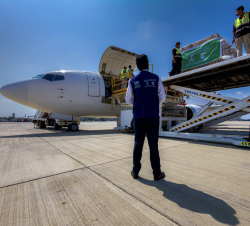The midwives braving armed gangs in Colombia
- 2021-03-01 14:31:42


 Pierre Rayer: Art, Science, and Happiness: The Universal Mission of Transmission to Future Generations through Patronage at the Louvre Abu Dhabi
Pierre Rayer: Art, Science, and Happiness: The Universal Mission of Transmission to Future Generations through Patronage at the Louvre Abu Dhabi Ahly crowned Super champions after dramatic extra-time win over Modern Future FC
Ahly crowned Super champions after dramatic extra-time win over Modern Future FC Yemeni Honey..A Development Wealth Threatened By Conflict And Climate Change
Yemeni Honey..A Development Wealth Threatened By Conflict And Climate Change California wildfires: Millions warned of possible power cut
California wildfires: Millions warned of possible power cut Central African rebels launch attacks near capital
Central African rebels launch attacks near capital Joint Statement at Conclusion of HRH the Crown Prince’s Visit to the United States
Joint Statement at Conclusion of HRH the Crown Prince’s Visit to the United States Sudan welcomes US and Saudi mediation efforts to end civil war
Sudan welcomes US and Saudi mediation efforts to end civil war Cristiano Ronaldo thanks Trump after White House dinner amid Saudi-US ties
Cristiano Ronaldo thanks Trump after White House dinner amid Saudi-US ties WHO Announces Arrival of New Measles Vaccine Shipment for Yemeni Children, Funded by Saudi Arabia
WHO Announces Arrival of New Measles Vaccine Shipment for Yemeni Children, Funded by Saudi Arabia Saudi PIF, SITE, Microsoft sign MOU to explore delivery of sovereign-cloud services in kingdom
Saudi PIF, SITE, Microsoft sign MOU to explore delivery of sovereign-cloud services in kingdom
